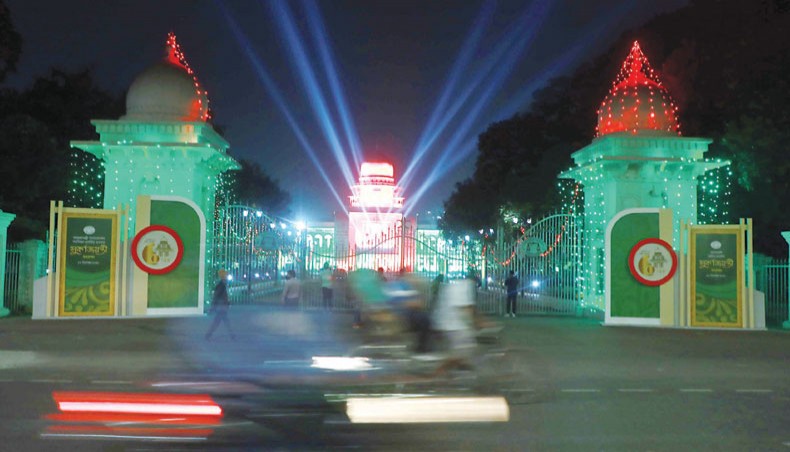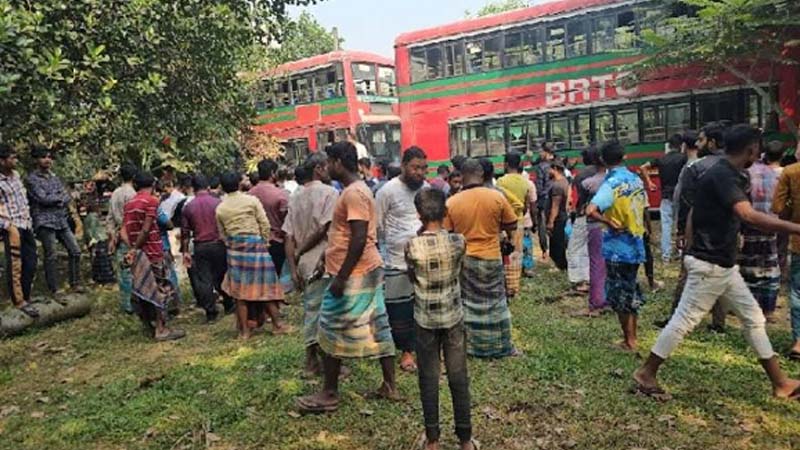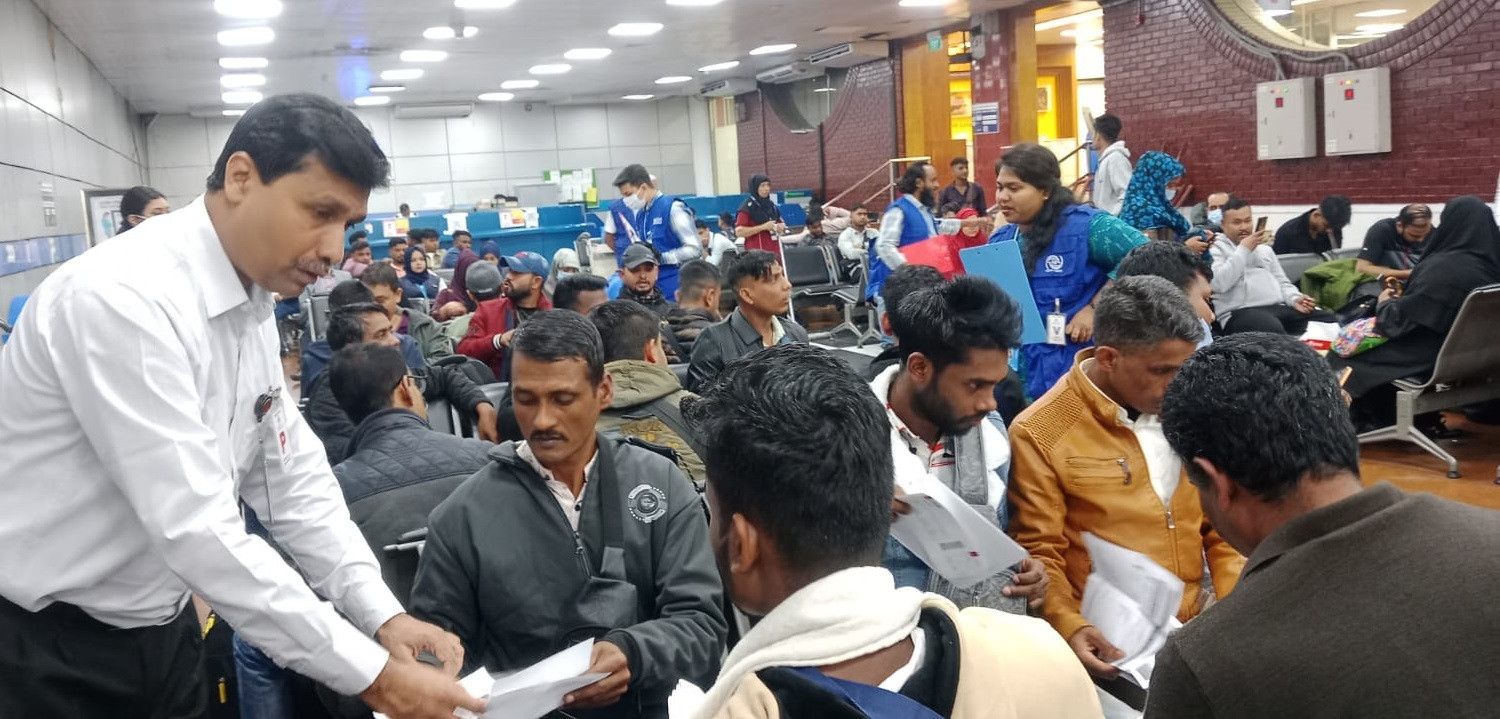Most of the major directives given by road transport and bridges minister Obaidul Quader to the departments under the ministry to improve the situation on roads are yet to be fulfilled.
These directives were given from time to time to bring back order on roads by improving the activities of the Road Transport and Highways Division, the Roads and Highways Department, the Bangladesh Road Transport Authority and the Dhaka Transport Coordination Authority.
The nine important directives were — preparing rules for the Road Transport Act 2018 for implementing the law, drawing up a policy to control easy-bikes, nasimon, karimon, leguna or battery-run smaller vehicles, inclusion of the national helpline number 999 into the ridesharing services, approving and implementing a project to establish axle load stations on important highways, expediting works to transform the Dhaka-Sylhet and Chattogram-Cox’s Bazar national highways to four-lane, keeping ambulances and fire service vehicles out the purview of toll collection, widening the Cox’s Bazar-Teknaf marine drive, making the electronic toll collection system popular and include the local government division minister and the housing and public works minister in the DTCA board.
Road Transport and Highways Division secretary Md Nazrul Islam told New Age on Thursday that they were on track to implement these directives.
After the enactment of the Road Transport Act in September 2018, the minister directed the BRTA to prepare rules for the law.
Till now the rules were not completed.
According to the RTHD, on June 1 this year, the draft rules were sent to the Legislative and Parliamentary Affairs Division for vetting while the division sent it back with a request for re-evaluation of 18 sections.
In October, the BRTA sent the draft rules to the RTHD after the re-evaluation.
RHTD secretary Md Nazrul Islam said that within one or two weeks they would send the draft rules to the law ministry.
At present, several lakh battery-run three wheelers, including easy-bikes and rickshaws, run all over the country defying a High Court directive issued on August 3, 2015 to keep all unfit motor vehicles off the roads.
The actual number of battery-run vehicles is unknown as these are not recognised as motorised vehicles as per the existing laws.
Since August 1, 2015, the road transport ministry imposed a ban on all types of three-wheelers on 22 national highways to avoid frequent accidents.
Against this backdrop, in 2018, Obaidul Quader directed to prepare a policy for easy-bikes, nasimon, karimon, leguna or battery-run smaller vehicles to control their presence on highways across the country.
The secretary said that they prepared two drafts of the policy on these vehicles but he was not sure when it would be finalised.
There were some disagreements among stakeholders and experts over issues regarding manufacturing of motorised three-wheelers and the service lanes meant for these vehicles, he said.
‘We don’t want these vehicles to ply the roads illegally but we need more discussion,’ he said and added that the draft would be sent to the cabinet division for approval.
Directive for expediting the works for turning the Dhaka-Sylhet and the Chattogram-Cox’s Bazar national highways into four-lane also remains unimplemented.
Nazrul said that the four-lane project for the Chattogram-Cox’s Bazar highway was a Public Private Partnership project and the PPP authority and the road ministry were jointly implementing it.
Currently, the Japanese Marubeni Corporation is conducting a feasibility study, he added.
The proposal for turning the Dhaka-Sylhet highway to four-lane road has already been sent to the Planning Commission and it would be sent to the Executive Committee of the National Economic Council within the next two months, he added.
For checking overloading on highways and roads, in 2018, the road transport division took an initiative for a project to build axle load stations at the sources of goods-carrying vehicles on the important highways which proposed to acquire land in 18 districts for this purpose.
The secretary said that they had already called tenders for establishing axle load centres at 17 points.
Obaidul Quader also directed the BRTA to integrate the national helpline number 999 in the apps of the ridesharing companies, which was also not implemented yet.
According to the BRTA, the process of issuing enlistment certificates for drivers and motor vehicles under the service started in July last year while 12 companies received approval from the authority.
The alleged non-cooperation by both the police and the ridesharing companies is delaying the incorporation of the national helpline number 999 in the ridesharing apps, said officials.
Nazrul said that access from police was necessary to implement this directive and the police authorities said that they



